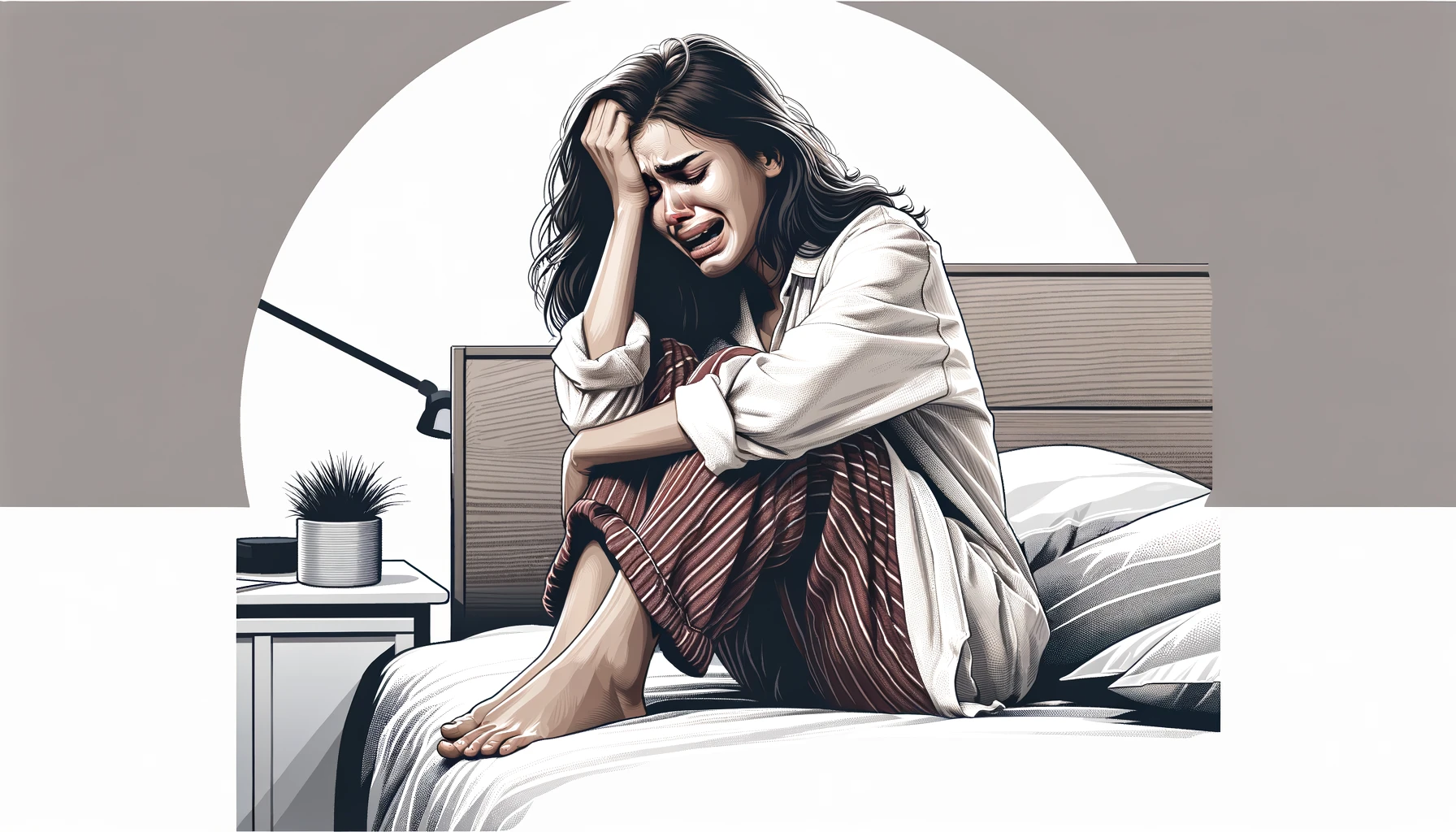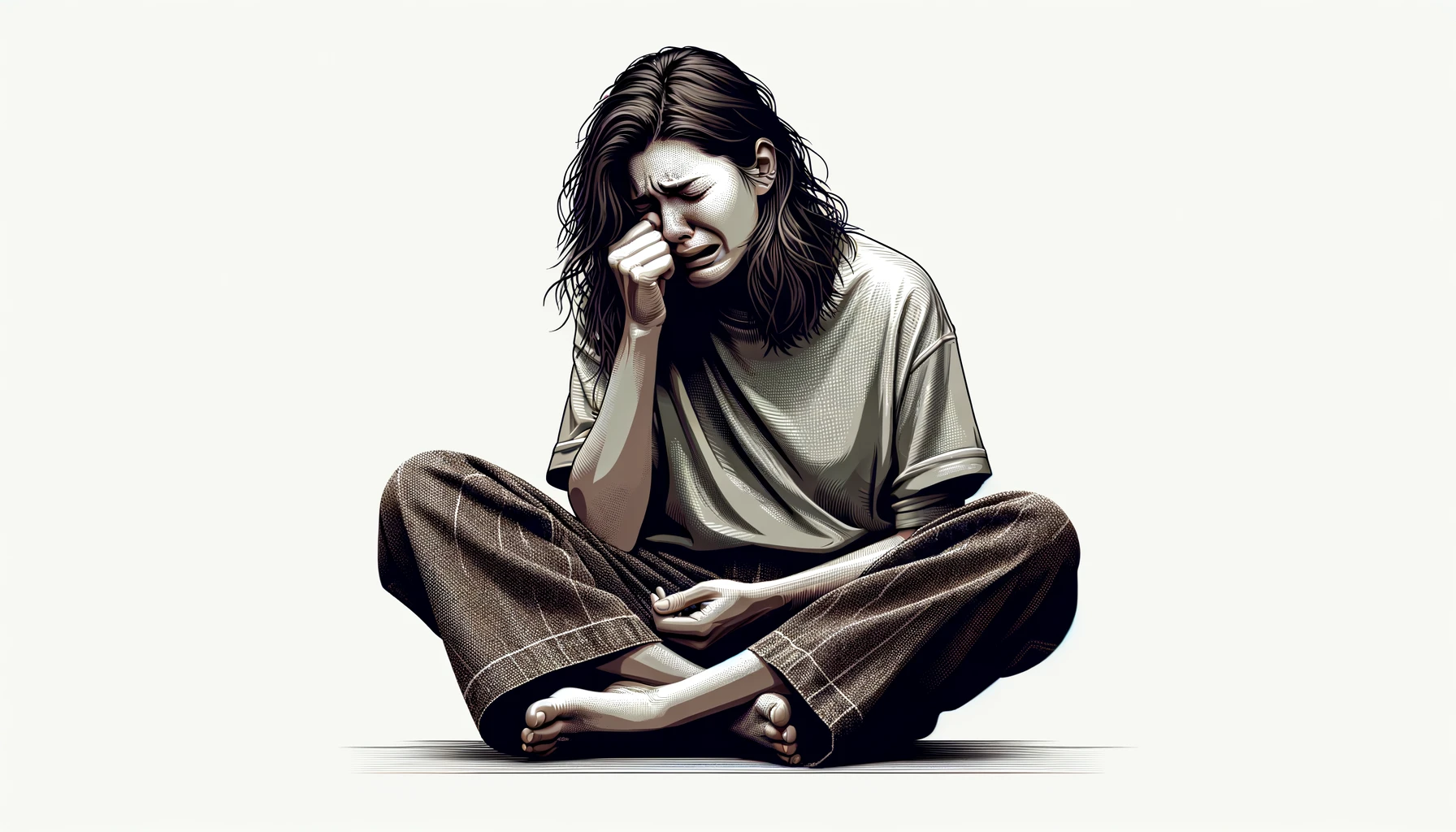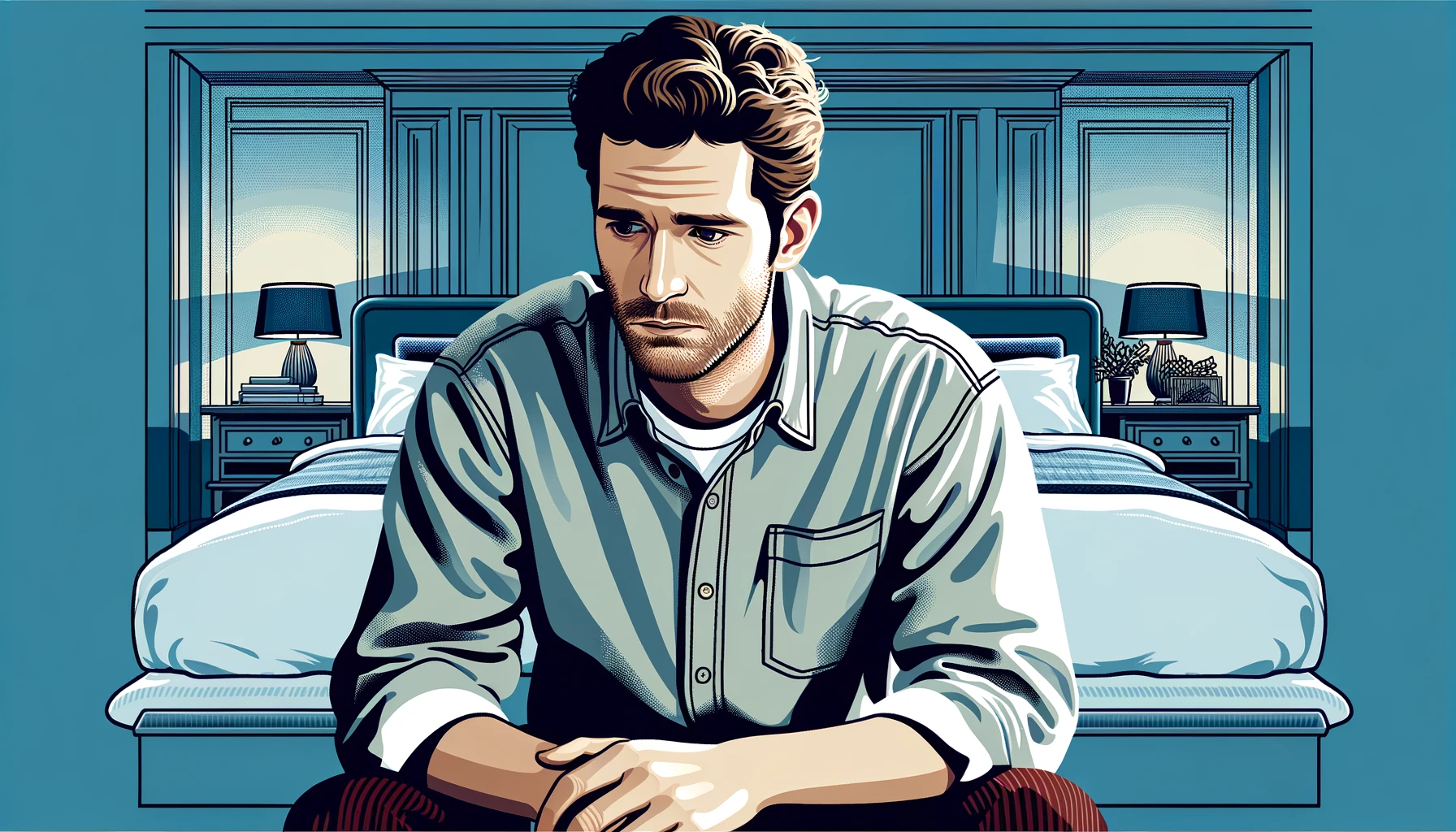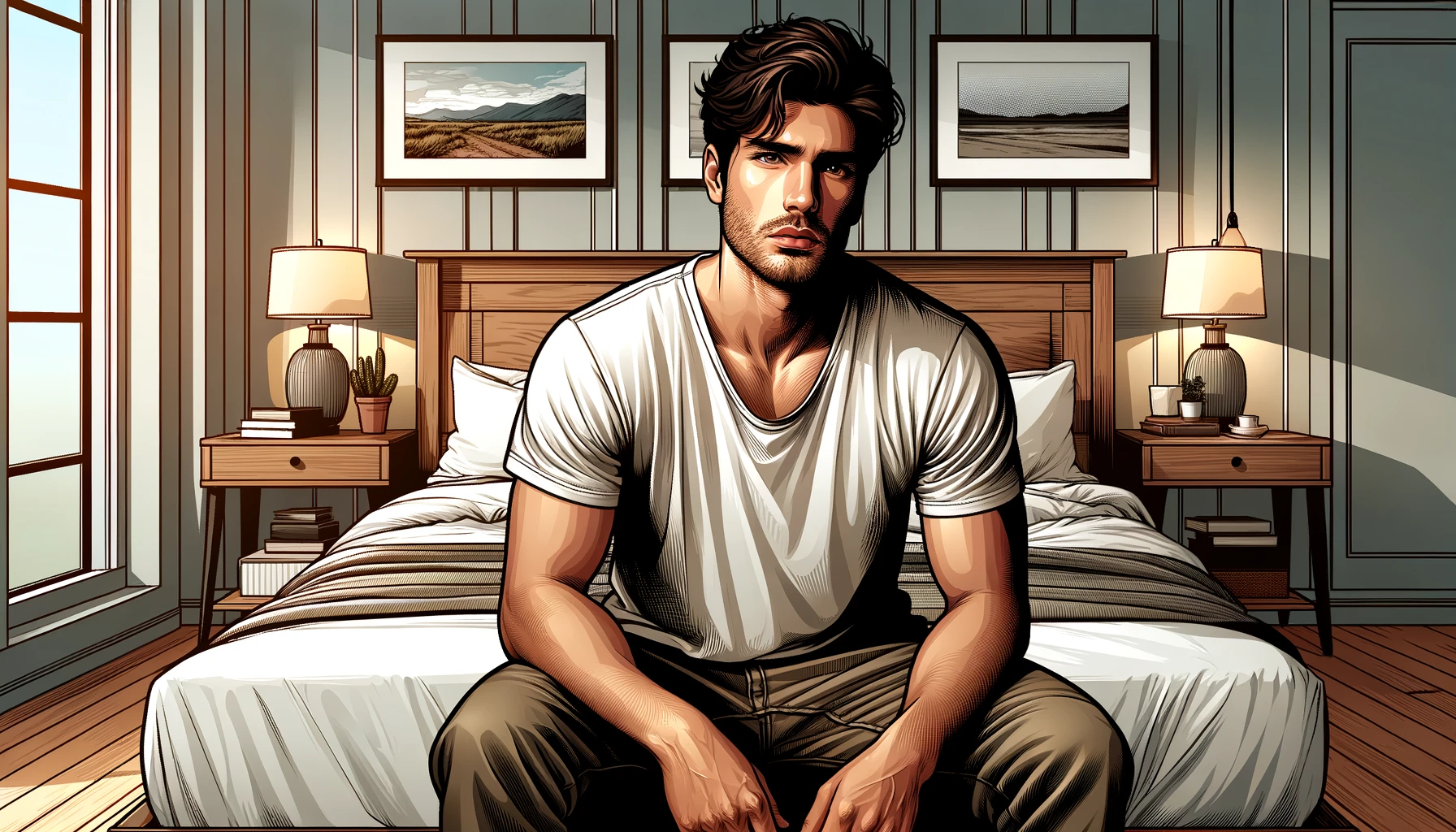Sharing is caring!
Breaking up with someone is hard, even when you’re the one who decides to end it.
You might think that because you made the decision, you shouldn’t feel sad or miss the other person, but that’s not how it works.
Feelings can be tricky, and just because you knew it was the right thing to do doesn’t mean you won’t hurt afterward.
It’s like saying goodbye to a part of your life that used to be super important, and that’s tough for anyone.
In this article, we’re going to talk about why it still hurts even when you were the one to end the relationship.
It’s normal to feel a mix of things, like sadness, confusion, or even a little bit of relief, all at the same time.
Understanding these feelings can help you feel better and start to move on. We’ll share some tips on what to do about all these emotions swirling around inside you.
Reasons Why It Hurts Even If You Ended The Relationship

1. You’ve Lost a Part of Your Routine
When you end a relationship, it’s like suddenly missing a piece of your daily puzzle.
You were used to having someone to talk to, share your day with, or just hang out with.
Now, that’s gone. It’s normal to feel a sense of loss, even if you were the one who decided to end things.
This change in routine can throw you off balance, making you miss the comfort and predictability that the relationship provided.
Adjusting to this new normal takes time. You might find yourself reaching for your phone to share something funny or interesting, only to remember that things have changed.
This habit, built over time, doesn’t just disappear overnight. It’s okay to feel sad about this shift.
Acknowledge these feelings as a natural part of the process. It’s not just the person you’re missing, but the little moments and habits that were a part of your everyday life.
2. You Miss the Connection, Not the Person
Sometimes, the pain you’re feeling isn’t necessarily about missing your ex but missing the connection you had.
Human beings crave emotional intimacy and companionship. When a relationship ends, even if it was your choice, that source of connection is severed.
You might find yourself longing for the feeling of being understood and valued, which is a normal human desire.
This distinction is crucial because it highlights that what you’re yearning for can be found again, in different relationships and forms.
It’s important to differentiate between missing the comfort of being in a relationship and missing the individual themselves.
This understanding can guide you in healing more effectively, knowing that it’s not just about getting back with your ex but about filling that need for connection.
Engaging in activities that bring you joy, connecting with friends, and exploring new social circles can help mitigate this feeling of loss and open the door to new, fulfilling relationships.
3. Your Identity is Changing
Ending a relationship often means redefining who you are without your partner. You might have seen yourself as part of a duo, and now you’re flying solo.
This shift can feel like you’re losing a part of your identity. It’s not just about being single again; it’s about figuring out who you are outside of the relationship.
This introspection can be painful but also incredibly rewarding as you discover new facets of yourself.
The journey of self-discovery can lead to moments of loneliness and doubt as you navigate through your interests, preferences, and desires that were once intertwined with another person’s.
Embrace this period of growth, allowing yourself to explore and experiment with what truly makes you happy.
Remember, it’s natural to feel a bit lost during this transition, but it’s also an opportunity to build a stronger, more independent you.
4. The Decision Comes with Doubt
Deciding to end a relationship is rarely easy.
Even if you felt it was the right thing to do, you might still be plagued by doubts. “Did I make a mistake?” “Could things have improved if we tried harder?”
These questions are a natural part of the grieving process, as you reflect on the possibilities and potential of what could have been.
It’s a sign that you cared deeply and didn’t make your decision lightly.
Living with these doubts can be difficult, but it’s also a part of coming to terms with the end of the relationship.
Over time, as you gain perspective, these doubts will start to fade.
Remember, it’s okay to question your decision, as it shows you’re thoughtful and considerate about the impact of your actions.
Give yourself grace during this time, allowing yourself to process these feelings of uncertainty.
5. You’re Grieving the Future You Had Imagined

Part of the pain comes from saying goodbye to the future you had envisioned with your ex.
Plans, dreams, and goals you had together are no longer in the cards, and letting go of that future can be just as hard as moving on from the past.
This sense of lost potential can weigh heavily on you, as it’s not just the relationship you’re mourning, but also the life you imagined you’d have.
It’s important to allow yourself to grieve this imagined future. Acknowledge the loss, but also start to envision a new future for yourself, one that’s filled with possibilities and opportunities that weren’t possible before.
This doesn’t happen overnight, but gradually, you’ll begin to see hope and excitement for what’s to come.
Embracing this uncertainty can be empowering, opening up paths to happiness and fulfillment that you hadn’t considered before.
[Also Read: The Stages Of A Break Up For The Dumpee]
6. You Still Care About Them
Even if you were the one to end the relationship, it doesn’t automatically turn off your feelings for the person.
You can still care deeply about your ex and feel hurt seeing them in pain or moving on without you.
It’s a complex mix of emotions, where you might find yourself worrying about how they’re coping or if they’re okay.
This concern shows your compassion and the genuine connection you once shared, making the process of moving on bittersweet.
Caring for someone doesn’t just stop because the relationship does. It’s important to recognize and accept these feelings without letting them pull you back into a situation that wasn’t working.
Finding a balance between caring from a distance and focusing on your well-being can be challenging but necessary for healing. It’s okay to wish them well while also prioritizing your happiness and growth.
7. The Relief is Mixed with Loss
Deciding to end a relationship often comes with a sense of relief, especially if it was troubled or unhappy.
You might feel like a weight has been lifted, giving you a chance to breathe and focus on yourself.
However, this relief can also be accompanied by a sense of loss. It’s like closing a chapter of your life that, despite its challenges, was significant to you.
This duality of feeling relieved yet sad is normal, reflecting the complexity of human emotions and relationships.
It’s okay to feel relieved and still mourn the loss of what you had. These feelings don’t negate each other but instead show the depth of your experience.
Allowing yourself to feel and express these mixed emotions is a crucial part of the healing process.
It acknowledges the reality of your experience, helping you to move forward with a clearer understanding of what you want and need in future relationships.
8. Fear of Being Alone
Another reason it hurts even when you’re the one ending the relationship is the fear of being alone.
The idea of stepping into the unknown without a partner can be daunting, especially if you’ve been in a relationship for a long time.
This fear can amplify the pain of the breakup, as you’re not just losing a partner but also facing the prospect of solitude.
It’s a significant adjustment, going from sharing your life with someone to navigating the world solo.
Facing this fear is a brave step toward self-discovery and independence. It’s an opportunity to learn more about yourself, your strengths, and your ability to be self-reliant.
Embrace this time to explore your interests, connect with friends and family, and invest in personal growth.
Remember that being alone doesn’t mean being lonely. It’s a chance to build a fulfilling life, with or without a partner.
9. Social and Family Expectations
Sometimes, the pain of ending a relationship is exacerbated by the expectations of those around you.
Friends and family may have seen you as a perfect couple, or perhaps they were invested in your relationship’s success.
Facing their reactions, questions, or disappointment can add an extra layer of difficulty to your decision. It’s tough dealing with not just your own emotions but also managing the perceptions and feelings of others.
It’s important to stand firm in your decision, remembering that you made the best choice for yourself.
While the opinions of loved ones are important, your happiness and well-being take precedence.
Communicating openly with them about your reasons and how you’re feeling can help bridge understanding.
Over time, those who truly care for you will support your journey toward happiness, regardless of how it looks.
What To Do When A Relationship You Ended Still Hurts

1. Give Yourself Time to Heal
First and foremost, allow yourself the time and space to heal. Healing is not a linear process; some days will feel easier than others.
Acknowledge your feelings as they come, without judgment. It’s okay to feel sad, angry, or even relieved at different times.
These emotions are all part of the healing journey. Engage in activities that nurture your well-being, whether that’s spending time in nature, exercising, or diving into a new hobby.
Remember, there’s no set timeline for healing, so move at a pace that feels right for you.
2. Lean on Your Support System
Don’t underestimate the power of a strong support system.
Reach out to friends and family who understand what you’re going through and are willing to listen and offer support.
Sometimes, just having someone to talk to can make a big difference in how you feel. If you’re struggling to cope, consider seeking help from a professional therapist or counselor.
They can provide you with tools and strategies to navigate your emotions more effectively.
3. Rediscover Yourself
Use this time as an opportunity to rediscover yourself outside of the relationship.
Often, we compromise or change parts of ourselves in a relationship. Now is your chance to explore who you are on your own.
Try new activities, revisit old interests you may have put aside, and reflect on what you want your life to look like moving forward.
This period of self-discovery can be incredibly empowering, helping you build a stronger sense of self.
4. Set Healthy Boundaries
Setting healthy boundaries is crucial, especially if you’re in a situation where you have to interact with your ex regularly.
Decide what level of contact (if any) you’re comfortable with and stick to it. This might mean limiting or avoiding contact for a while as you heal.
It’s also important to set emotional boundaries for yourself, such as not stalking your ex on social media or getting drawn into potentially painful conversations.
These boundaries help protect your emotional well-being as you move forward.
5. Focus on the Future
While it’s important to process your feelings about the breakup, try to focus on the future and the possibilities it holds.
Set goals for yourself, both short-term and long-term.
What do you want to achieve in the next few months or years?
Focusing on your goals can give you a sense of purpose and direction during a time that might otherwise feel uncertain.
6. Practice Self-Compassion
Be kind to yourself. Practice self-compassion by treating yourself with the same kindness and understanding that you would offer a good friend.
Avoid harsh self-criticism or dwelling on what you could have done differently. Acknowledge your strength in making a difficult decision and recognize the growth that comes from navigating tough situations.
Self-compassion can significantly impact your healing process, leading to greater emotional well-being.
Each of these steps can help you navigate the complex emotions that come with ending a relationship, even when you decided to do so.
Remember, it’s okay to seek help and support as you go through this process.
You’re not alone, and there is a path forward to a happier, healthier you.
Sharing is caring!
